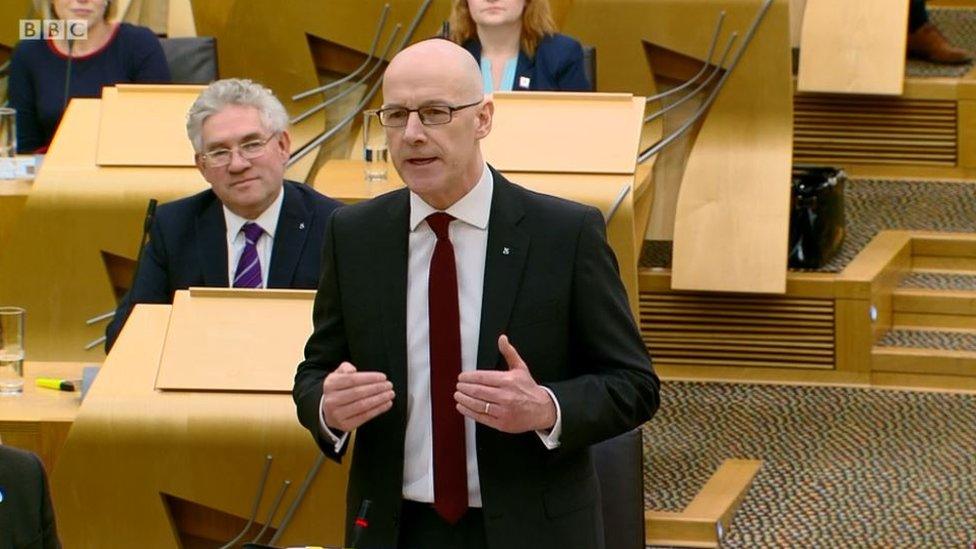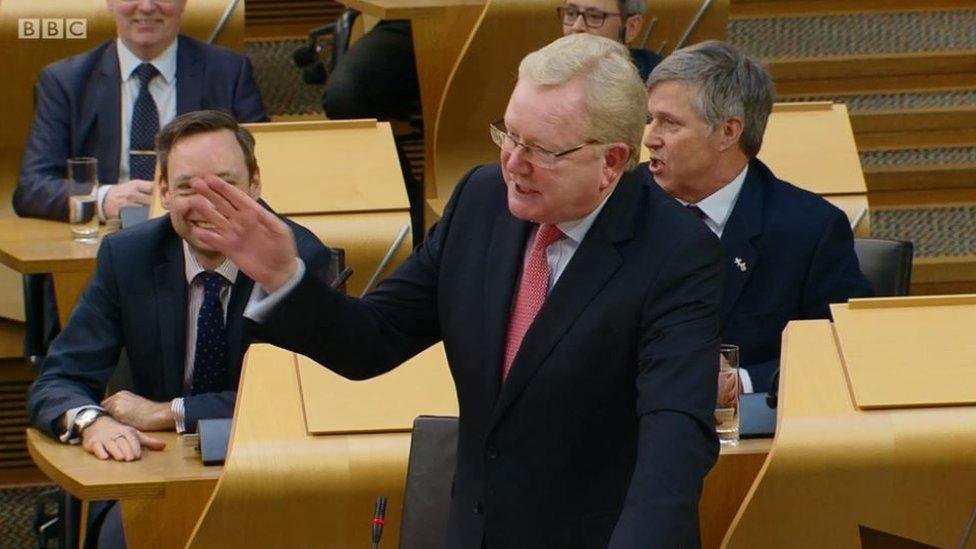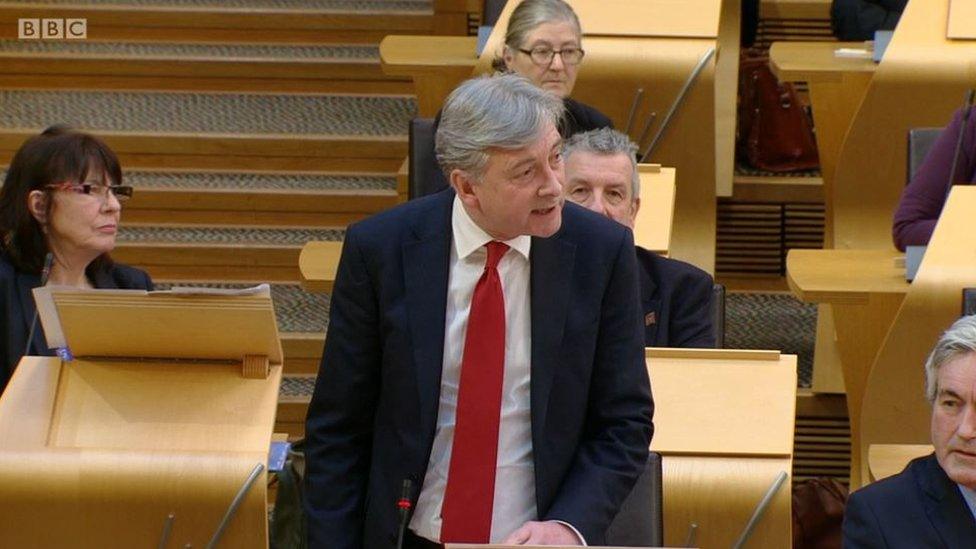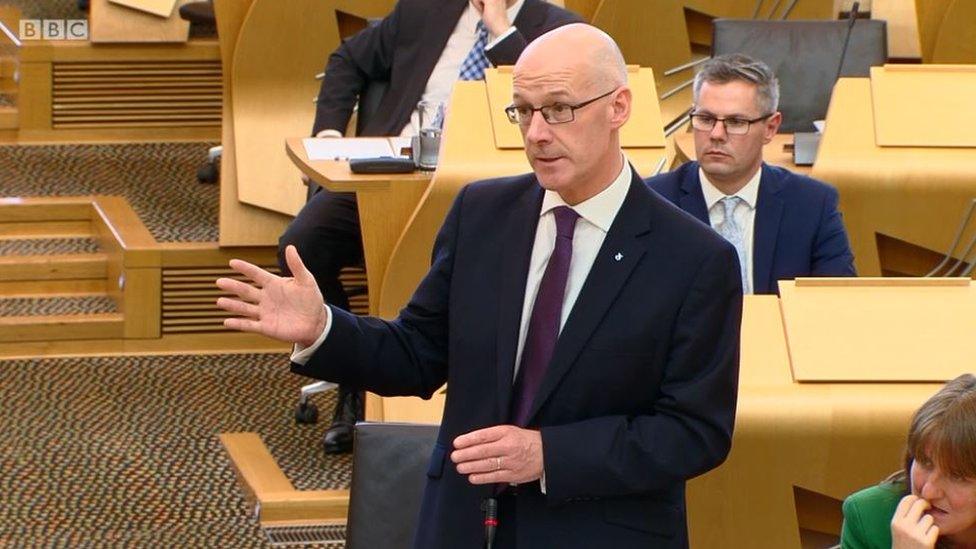Parking the issue
- Published

John Swinney stood in for Nicola Sturgeon, who is in Canada
It was vintage Swinney. Towering oratory. Searing passion. Rhetorical devices. All on display. All highly effective. It was only when the deputy first minister subsided once more, emotionally drained, that a mischievous thought occurred.
He hadn't actually supported the policy which had caused the controversy in the first place.
I speak of the workplace parking levy, conceded to the Greens as part of the price for a wider deal on the budget.
In essence, Mr Swinney said that ministers had been obliged to tolerate the discretionary parking charge in order to secure the goodies contained elsewhere in the budget.
But he contrived to turn this mundane admission into a tour de force. He added into the mix a powerful defence of local decision-making, accusing the Tories of "hypocrisy" in the by-going.
Again, this was done with panache and vigour. Mr Swinney listed four Tories who had signed a joint letter, supporting localism. One by one, he excoriated the villainy of their seeming about-turn - before uttering the last name in a quivering baritone.
Yes, chums, it was Jackson Carlaw. Mr Swinney's interlocutor on this occasion. To be fair, Mr Carlaw was on rather good form too.
He chided the DFM for theatricality - while indulging in some exaggerated stage business of his own. It was powerful stuff: Vladimir and Estragon, with a little more in the way of substantive dialogue.

Jackson Carlaw theatrically chided Mr Swinney's theatricality
Plainly, the Tories think they have found another issue with which to upbraid the SNP. In vain do ministers complain that there is, as yet, no detail as to how the scheme might work.
That simply provides more scope for opposition mischief. They can write their own proposal, then condemn it as emerging from one of the lower circles of Hell. Right next to the space reserved by Donald Tusk for imprecise Brexiteers.
We know how it works in Nottingham, the only city in England to adopt such a scheme. There, employers who provide 11 or more parking spaces are liable - and have been since the plan was introduced in 2012. From April, they'll pay £415 per space. Roughly half of them pass on the charge to staff.
That may - or may not - offer a model for Scotland. In any event, Mr Carlaw wasn't happy. It could add up to the equivalent of a 10p income tax hike for lower-paid employees.
Mr Swinney wasn't having it. This was about local discretion. About empowering councils. About giving them the freedom to determine policies in line with their area's needs. Plus the policy had yet to go out to consultation.

Richard Leonard questioned Mr Swinney about hospital waiting times
From these exchanges, acerbic and substantive in turn, we moved to hospital waiting times. Labour's Richard Leonard pursued Mr Swinney relentlessly over statistics which tell of a failure to meet targets.
Mr Swinney's tone was now markedly different. Sombre and solemn, instead of bombastic. This is a tough one for ministers - and he knows it.
Things didn't get markedly easier when Patrick Harvie of the Greens rose to complain about Scotrail's performance. Again, Mr Swinney essayed reassurance.
All the while, Nicola Sturgeon was in Canada, continuing her North American tour. Mr Swinney duly did what deputies do. He deputised.
And, despite the troublesome topics, he did so rather effectively. As is to be expected, given his stature and reputation.
- Published7 February 2019

- Published4 February 2019
